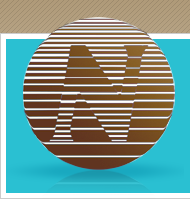Call for Papers: “The Comics of Alison Bechdel: From the Outside In”
Thursday, June 30th, 2016Call for Papers
The Comics of Alison Bechdel: From the Outside In
“The Comics of Alison Bechdel: From the Outside In” is a proposed volume in the series Critical Approaches to Comics Artists at the University Press of Mississippi. This volume will contain an array of critical essays on the comics of Alison Bechdel, offering new examinations of her entire body of work.
The collection takes as its starting point the phrase “from the outside in,” and proposes to look at Bechdel from several perspectives: Bechdel as an outsider and her changing position in the world of comix/comics and beyond; her investigation of interior life and its relationship to the outside world; and her many modes of drawing, writing, and performing queerness. Essays from interdisciplinary perspectives are encouraged, including critical approaches from comics studies, art history, cultural studies, material culture, print culture, life writing, queer theory, trauma studies, psychoanalytic theory, history of sexuality, archive studies, and adaptation studies.
Essays that engage Bechdel in light of the following topics would be particularly welcome (although this list is by no means exhaustive or prescriptive; essays that address topics not listed here will be considered as well):
Bechdel as outsider/in from the margins:
· alt-comix: the world of Dykes to Watch Out For and how it changed the world of comics/comix
· Bechdel and alternative weeklies
· Bechdel and censorship
· Bechdel in the classroom/Bechdel and pedagogy
· Bechdel in the academy/the Bechdel industry
· Bechdel the bestseller
Interiors and the outside world:
· imagined spaces/places/objects
· furniture and design
· architecture
· autography/memoir/life writing
· trauma/mourning
· inside the archive
· sexuality and subjectivity
Drawing, writing, performing queerness:
· the many modes of Alison Bechdel: blogging, interviews, adaptation, photography, film and Hollywood cinema (the Bechdel test)
· Bechdel and music: popular, classical, queer
· Bechdel and Broadway: music, adaptation, the tradition of comics on the stage
· Bechdel and the body: gender normativity, butchness, bodybuilding
· Bechdel and performativity
· Bechdel and queer print culture
· LGBT history and activism
Please send abstracts of at least 500 and no more than 1000 words, along with CV and contact information, to Janine Utell at janine.utell@gmail.com by December 1.

